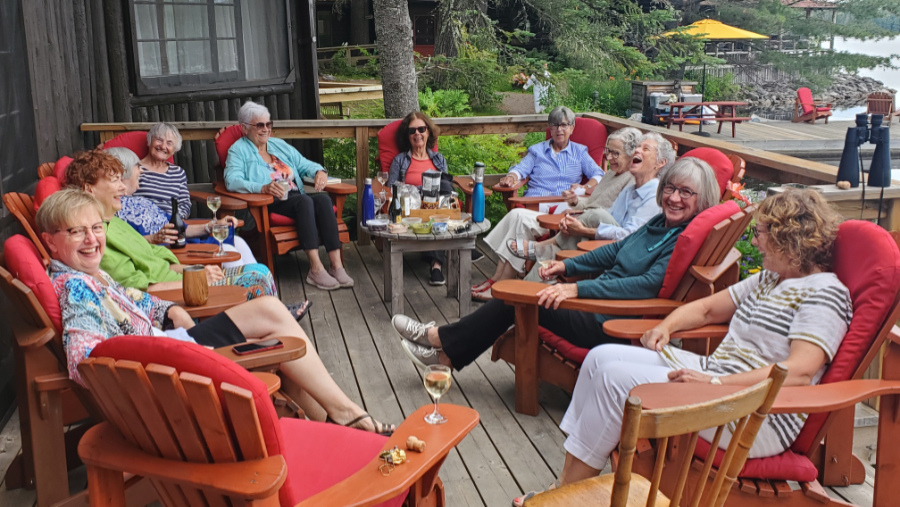July has always been a significant month for me. As a child in the 50s, it meant the freedom of a summer schedule that didn’t include school. I can’t even recall if I disliked school. I was a good student who loved recess; always the first one chosen for team sports because I was an exceptionally fast runner, competitive and very good at softball and soccer. I was what was formally referred to as a ’tomboy‘. All this to say, it wasn’t because I didn’t want to go to school. I did like school.
To me as a child, summer meant going swimming at a local pool where I could also play tennis, socialize with friends, ride my bike wherever I wanted to, and head home for dinner, the only meal I had to show up for. My parents (and others too) seemed to trust us as children to make appropriate decisions for the circumstances. We occasionally got into trouble, but nothing really serious.
Were we lucky. Were the times that different, or have times changed so completely that parents today can’t let their children walk down the street or go to a nearby park alone? I don’t know for sure, but I sense the fear of stranger-danger is top of mind today and maybe deservedly so.
All this to say that summers were unscheduled, carefree times. Entering my teen years, July continued to be much the same except now hanging out with friends, listening to music, daydreaming, and having crushes on boys became infinitely more important than being competitive in swimming, diving, and tennis. All my former talent went by the wayside. Hormones ran amuck.
Throughout the decades, July always represented a delicious time of year. Of course, it helped that I went into education as a career, although summers as a teacher and school principal were never free. There were always courses to take to upgrade qualifications, and other responsibilities like winding down the school year and then starting it up again, but the bells for the change of classes weren’t ringing the way they did during the year!
And then came the time in life when all these routines became less important, and July was a time for discovering new cultures, places, and people. At this point, I had the good fortune of being invited to join a friend’s experiment—a canoeing adventure in the wilds of Algonquin Park with other similarly aged women.
We were judges, doctors, lawyers, teachers, city planners, engineers, leaders, and artists, and we were always led by young women who served as Park guides to manage us. We didn’t know each other that first year but we were all friends of one person. In hindsight, I can say we were all very privileged. But, despite having very different backgrounds, education, interests, and life experiences, the experiment worked. We all got on well enough to say we’d do it again next summer.
We have continued the tradition over the past 22 years with two summers off during Covid. Every second week in July, we reconnect somewhere in Algonquin Park. There were about 17 of us to start out, but over the past two decades, some have dropped out and we are now down to 13 consistent participants. We only require one guide to manage us now.
Times have changed. Our group’s youngest member is now 65, and the oldest is in her 80s. Our conversation this summer began with the list of joints we had replaced during the past 12 months. We didn’t dwell on it, though, we were just glad that we were back together and in the Park.
One of us had recently lost a partner, and many of us had lost friends or were caring for others. Almost all of us now have grandchildren and worry about their future. Our conversations have shifted, too; we now see the shades of grey rather than only black and white. In spite of our many differences, we are more forgiving and accepting of each other. We’ve all mellowed and appreciate our group of friends and close acquaintances with whom we can enjoy the second week in July together.
The research on the importance of meaningful relationships to counter loneliness and isolation in later years is quite conclusive. Personal connection is an all-important factor in avoiding depression and early death. As we age, we need to create new traditions and new meanings for our changing lives in order to feel fulfilled and relevant. The get-togethers of friends can be as simple as meeting to play cards, or discussing books or politics, but such gatherings are essential to us, especially in later life.
This canoe group began its journey last century. We were quite “old” for the times and Algonquin Outfitters who provided the guides and canoes for us always referred to us as the “Wild Women” group who showed up every second week in July. Even the guides remember us and let the owner know that when we return, they want to guide us. Our conversations around the bonfire at night always surprised our 20-something-year-old guides. They never thought of us as out of touch or irrelevant. In fact, quite the opposite; we role-modelled for them that life, when older, can continue meaningfully, productively, and joyfully. It gave them hope and a new perspective on their parents’ lives.
Chronological age is just a number which doesn’t need to define you. If you had seen us sitting together on a deck, you’d probably think, how sweet, a group of older women drinking wine and having a good time. And that would be true too, but each one of those older women has led an extraordinary life and all have inspiring stories and wisdom to share. Most importantly, they have a sense of community and belonging, something that they all cherish and nurture every July.


0 Comments